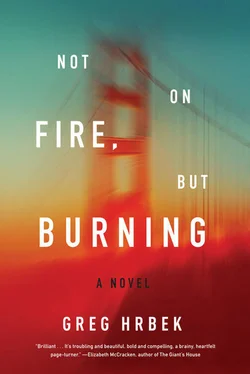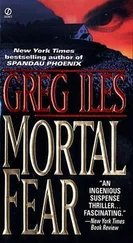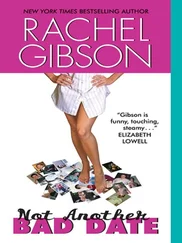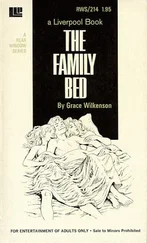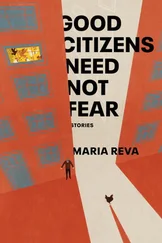On the note fixed to the door of the school, the location of another shelter had been written. The man told Skyler he would help her carry the boy there, though he didn’t think it was a good idea for anyone. He knelt there, waiting. The rain was more like tar than oil. Then the man suggested that maybe she wasn’t thinking clearly and the thing for her to do was leave the boy here and go with him to the next shelter.
“Leave him where?”
“Here.”
Skyler didn’t answer. She closed her eyes and wished the man would disappear. When she opened her eyes, he was gone.
City wireless was still working. She did a search for hospitals. The nearest one, by chance a children’s hospital, was close enough. But the rain. A wet toxic shit, not falling hard, but after a few minutes they would be covered. The air, too , Skyler thought — and they could not but breathe the air. Still, the rain seemed more dangerous. They needed clothes. She left Noah by the school and ran along the sidewalk to a row of houses whose bright colors Skyler could still make out through the cover of ash. She scrambled up a set of stairs. The door was locked, but the panes of glass were gone, as was the glass in every other window. She reached through and turned the knob on the inside. On the floor of the foyer: a scattering of mail. Accruing, Skyler guessed, for a week. They weren’t here. They were somewhere else. Clothing hung from hooks on the wall. She pulled on a windbreaker and zipped it to the neck, and took a hooded sweatshirt for him.
What else?
For the second time, she felt a qualm of nausea. Didn’t want to eat, but she should take food for later, and there might be filtered water. She got halfway down the hall and retched. It must be in me. She found water in the refrigerator. Rinsed her mouth, and drank. Then she pulled out her phone and sent her parents an e-mail. Subject: I M OK.
She hadn’t been there more than five minutes. When Skyler got back to the school and found Noah gone, a spike of panic went into her heart, a feeling from a dream she’d had weeks earlier in which she was her brother’s mother, realizing she’d lost her child after dark in an amusement park with attractions made of ice. Someone in the school had taken Noah. Or maybe not. Was he never really here? For a moment, Skyler saw through all the tricks her mind had been playing. Then she looked across the street — and there he was, wandering over the smoking waste of the park.
“Hey,” she said, catching up with him. He didn’t respond. When Skyler touched his shoulder, still no reaction. She had to get in front of him and stop him with two hands.
He blinked up at her.
She said: “And where do you think you’re going?”
He nodded.
The rain was in his hair and dripping down his face and into open wounds she somehow hadn’t seen until now.
“This isn’t a natural reef,” he said.
“What?”
But he didn’t say anything more. He just stared at her, though not directly. Eyes open like the eyes of a sleepwalker. Skyler passed a hand before them. The pupils didn’t react. The flash, she realized. And Skyler remembered, long before Dorian. Her father had been in Japan, and she and her mother and Cliff had met him there, and they had traveled all through the country (she was six, seven) and arrived finally at the Peace Park in Hiroshima. She hadn’t really comprehended. But she had never forgotten, of all the memorials, the one dedicated to the children, and how her mother had lifted her up so she could take hold of the rope and ring the bell.
The hospital. The nearer they came, the more people they encountered streaming in the same direction. Some were bleeding and soaked with blood; others seemed completely untouched, and Skyler wondered what they were doing, not sheltering in. Since opening his eyes, the boy had not wanted to be carried. He insisted on doing his own walking, though his vision was gone; as was some of his hearing; and, Skyler guessed, a good part of his memory. He wasn’t saying a word about parents or home, nor asking a single question about what had happened. Now she swept him up and tried to run the rest of the way, an activity that made her stomach sicker. The entrance in view at last was for the emergency room. When she saw the crowd outside, Skyler stopped and set him down and heard herself sob. All confusion: no help here. Then she caught sight of someone wearing a protective parka with a respirator mask. Heard instructions knifing out of the chaos. She picked up the boy. Around the corner, at a different entrance: pulsing lights of a police cruiser; fewer refugees; more responders in hazard suits and masks, turning the childless away and directing anyone with a boy or girl toward the doors.
Inside, there was nothing as organized as a triage station or a line. Women and men in blue scrubs were moving through the crowd, examining patients and then directing them, as if they were a form of traffic. The room — the smell of burnt skin, the sight of so many hurting children — made Skyler want to vomit. She thought she could feel it in her system now, the poison: a slow burn along the fuses of arteries and veins. A woman in scrubs took one look at Noah and checked the yellow box on a color-coded tag.
“Tie this to his arm,” she said. “Over there. Yellow.”
“What does that mean?”
“It means yellow.”
Skyler felt stupid for asking the question, and selfish. She tried to thank the woman, the nurse or doctor or medical student; but her voice got lost in the whirling flock of voices, and the woman was already checking the next tag — red — and securing it to the wrist of a girl whose body hung on her father’s arms like a deserted cocoon. Skyler took Noah’s hand. Affixed the tag and went with the other yellows. Wounded and lost forever, but not in danger of dying. That, she thought, is what it must mean.
“Is he your brother?”
“What?”
It was a man speaking to her. They’d been pushed close to one another on the way through doors that were painted like barn doors and gave onto a ward whose walls were bright murals of farmland.
“No,” Skyler finally answered. “No, he isn’t.”
She sat on a chair with the boy in her lap, waiting, mind and pulse finally slowing. People around her talking about where they had been and what they’d been doing when it happened. Skyler had been writing. Working on a short story while Noah played Monopoly. She tried now to recall. Couldn’t. What was the story? Something about … She had been writing it for weeks, but couldn’t remember anything now about the plot or the characters. When it happened, she had been writing a story. Noah had said look; and as she ducked away from the window, the computer, still on the table with the file open and a sentence unfinished on the screen, must have been hurled melting through the air. And her story must have gone with it.
They had been waiting for one of two doctors in blue scrubs, neither much older than Skyler. Finally, the young man came. Detached the lower tab from the triage tag and took the boy’s wrist. Took his pulse and wrote on the next tab and only then gave her a kind of smile. He put a hand on Noah’s chest and said into his ear:
“Breathe now.”
The boy kept breathing.
“What’s your name,” the doctor said.
“Skyler.”
“Him?”
“Noah. He’s my— I mean, I babysit him.”
“Mother?”
“She’s out of town,” Skyler said.
“Father?”
“They’re divorced.”
The doctor withdrew his hand from the boy’s chest and wrote again on the tag. Then asked Noah firmly: his name, where he lived, where he was now. The boy’s answers made no sense. Again, the doctor looked at Skyler, and asked: “Do you know what happened out there?”
Читать дальше
